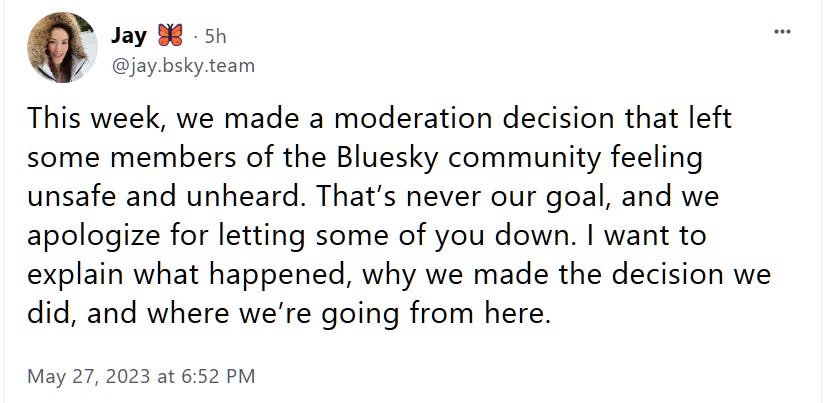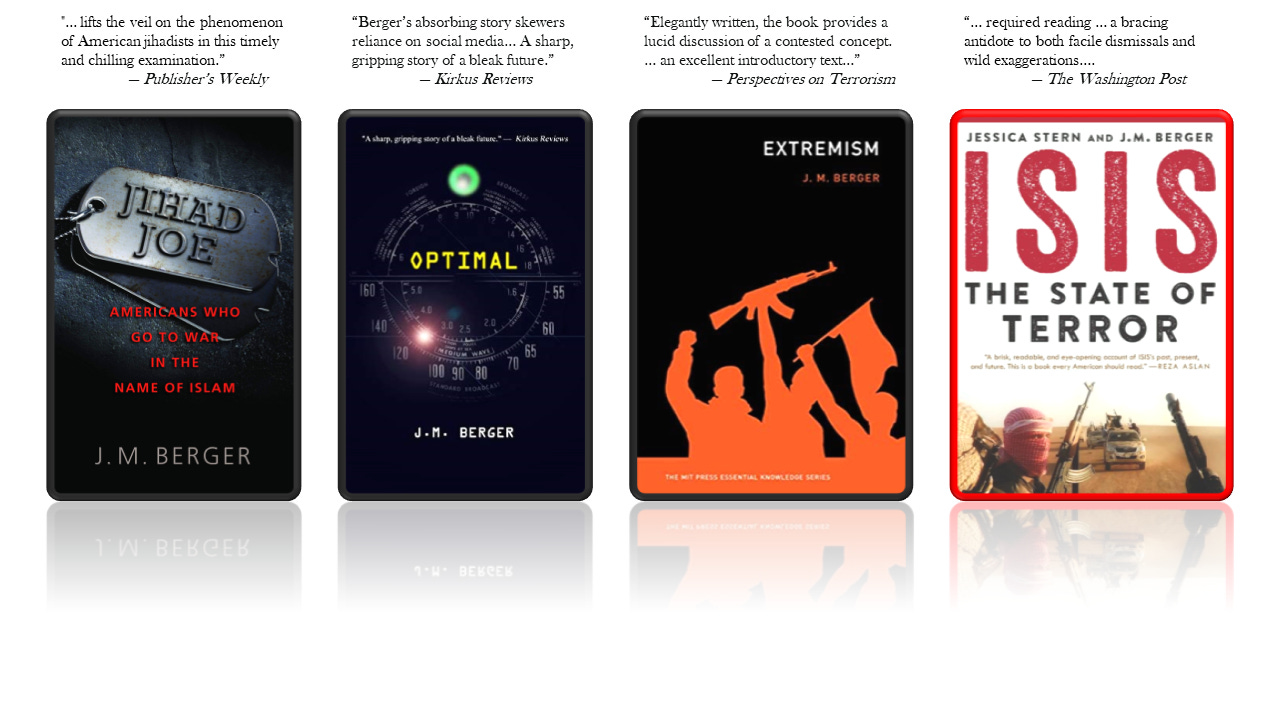Content moderation is the product
Some thoughts on the current slate of would-be Twitter-slayers
This is a bonus newsletter. My dive into anti-Asian dystopias will resume next week.
Like many of you, I’m experimenting with alternatives to Twitter—Mastodon, Post, Notes, and Bluesky, so far. More are expected to arrive in the coming year, and I will probably check them out each in turn.
While advocates will wax on about the structural and technical benefits of each microblogging platform, all these platforms offer essentially the same basic functionality: You write a short-ish post, maybe with a picture or video attached, which can then be reposted or replied to by other users, who can follow you.
Everything else is just window-dressing. Post offers a theoretical way to support news outlets, while Mastodon and Bluesky are federated, a quality that is largely irrelevant to the feature set. Depending on your client software, you can easily mistake them for each other, or for Twitter (and I have).
As with email, Mastodon and Bluesky are decentralized communications protocols, where you sign up for a particular provider, but you can communicate with anyone else using the protocol. Mastodon was built that way to serve as a social platform not beholden to the Silicon Valley oligarchy. In contrast, Bluesky was created by the oligarchy, and co-founder Jack Dorsey’s sophomoric ruminations about free speech suggest that its founding principle is the desire to avoid taking any responsibility for how the protocol is used. When moral and legal hazards come calling, you can shrug and say “sorry, it’s decentralized.”
The good news about federation is that a billionaire (probably) can’t shut the protocol down. The bad news is that it’s hard to mobilize a unified response to problems such as users posting malicious content.
Similar to blockchain, federation matters to a highly vocal minority, who espouse it on ideological and/or technical grounds. But 95 percent of average internet users don’t understand federation and don’t care, in the same way that they don’t care if their email provider uses IMAP or POP. Users care about their experience as users, and their experience is shaped by people first, and technology second.
Thus, after a brief golden age with a small beta testing community, Bluesky has become mired in endless conversations about its own rules, much as Mastodon did before it. It doesn’t help that the platform has grown to about 100,000 users with almost no content moderation policy in place—just 637 words of Community Guidelines which can be summed up as “be nice” and “don’t do crime.”
All of these platforms are essentially the same as far as key functions and user interface, aside from some bells and whistles such as micropayments for news (Post) or custom algorithms (Bluesky). The only meaningful differences derive from the people who use the platforms, the community. That’s what Elon Musk has destroyed on Twitter. That’s what each of these would-be competitors needs to reconstitute.
Bluesky became the hot new place to be because of its vibes, not because of its feature set and not because people everywhere are clamoring for federation. The joyful vibe began with a small invite-only community of marginalized people who had endured harassment on other platforms and felt good and free to express themselves within this new space. But as Bluesky’s user base climbs toward 100,000, the content moderation challenges have already begun, and they’re only going to get worse.
For instance, DID YOU KNOW that harassers and extremists often hide harassing violent intentions behind irony, coded language, and claims to just be using “figures of speech”? Of course you did, because you’ve been on the Internet for five minutes. But Bluesky apparently did not.
The race to replace Twitter has made it clearer than ever that the technology hardly matters. Bluesky is a true beta, janky as hell, but users talk far more about moderation than about making gifs animate correctly. The differences among these competitors are mostly trivial and mostly cosmetic. What makes a platform attractive—what made Bluesky the hottest ticket in town for a few weeks—is a community that feels eager to engage, where people feel safe sharing their thoughts and feelings.
Even sites like Truth Social, Parler and Gab offer essentially the same functionality. People who join those platforms are signing up because of their moderation practices, not in spite of them. A highly permissive content policy is still a content policy, and the permissive environment is the primary selling point for all of these.
Content moderation isn’t a problem that a platform needs to escape. The ability to share safely is what makes a platform attractive to most users.
Content moderation isn’t a feature that can be added to the product in an update later. Moderation policies need to be in place long before the platform has 100,000 users. Moderation policies shape the community. They ensure safe participation.
Content moderation is not a feature. It is the product.
We are spoiled for choice when it comes to sites that will let us type 280 to 500-ish words for a bunch of followers. Twitter was, for a time, the premier online location where cool people came to do work and have fun. The community made it good. We need an online space that fosters good community.
Bluesky is on the cusp of deciding whether it will be such a space, but it should have decided that six months ago. Instead it’s just publicly flailing, with its users and employees relitigating every argument anyone has ever had about content moderation—even while a ton of former Trust and Safety people who are part of the beta test desperately try to share the knowledge that comes from experience.








I read it and shared it on Twitter.
Then I read it again. And got a jolt. I do miss the safe space that was terrorism academia on Twitter.
Life was easier.
I'm not sure where to go next.
It's all a massive distraction. Missing Dr John Horgan because he used to keep me on my toes and it was a constant learning from brilliance.
It was safe because good people paved the way.
And shared generously, with patience.
Now it's just a constant assault on psyche and soma.
Thank you.
I can't decide if it's the language, the attitude, or the content, but every post on WGW starts me grinning a few sentences in and keeps a dopey (tho I prefer "knowing") smile in place to the end. Sharp, engaging and only snarky when the facts demand. I love this column!